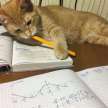The Lord of The Flies | literally every 10th grade novel study ever.
A study.

Civilization portrays the uttermost established form of mankind existing in this rigid society; without it, mankind reverts to the more primitive and uncivilized part of their nature. This concept of human nature was emphasized greatly in William Golding’s novel, “The Lord of The Flies.” This novel highlights the different events a group of boys experience while stranded on an island. They develop rules and systems of organization, but without any civilized adults to guide them, the boys eventually become violent, and start to portray uncivilization . Golding draws prominence to this concept by using literary tools such as the symbolism of the conch shell and how it relates to one of the first acts of civilization, a detailed characterization to explain Jack’s need for civilization, and the use of masks or painted faces as another form of symbolism and how they relate to the need for civilization.
At the beginning of the story, Golding accentuates the concept of how civilization is needed in order to abstain from savagery, by adding the symbol of the conch shell, which highlights the first acts of civilization portrayed by the young boys. The narrator states, “Ralph smiled and held up the conch for silence” (Golding 31), as an example of how the more initial acts of civilization were being placed upon prominence closer to the beginning of the novel. Ralph held up the conch to grab the attention of the boys, so that he could speak without any interruption. The use of the conch shell as a symbol of civilization is used greatly throughout the entire novel. The conch shell symbolizes a civil process in which the conch would be used when one of the boys desired to speak. The boys instantly, near the beginning of the novel, embraced this idea that holding the conch ensures that each boy will be able to express his thoughts and ideas without interruption. The symbolism of the conch shell relates to the idea of democracy, free speech, and equality, which is why the boys quickly caught on to this idea. The boys realize that they need to find effective ways to civilize themselves so they could avoid acts of savagery. Furthermore, the conch shell is also a great way to promote a democratic environment in an easy and effective way, especially since most of the boys are still younger children. The younger boys refer to the conch shell as a “trumpet-thing” (30), meaning that they quickly grasp the idea of the conch shell and start comparing it to something that they know and have seen in the real world. A trumpet is an instrument that can be considered quite similar to a conch shell because they can both be used to grab the attention of others with the sound that takes place once it is blown into. These pieces of evidence emphasized by Golding illustrate with great significance, how the symbol of the conch shell highlights how the need for civilization occurred in one of the first initial acts portrayed by the boys.
In addition to Golding accentuating how the symbolism of the conch shell relates to the need for civilization, Golding also illustrates a detailed characterization to explain Jack’s need for civilization. Jack’s overall character is the primary representation of the instinct of uncivilization. Golding indicates, “Jack had him by the hair and was brandishing his knife” (142), as a piece of evidence that significantly highlights how Jack portrays savagery and violence by teasing around about killing Robert. Jack is unable to help his temptation to avoid barbarity because his animalistic and immature behavior has taken over him. Initially, Jack’s portrayal of uncivilization starts in chapter four when Jack walks out of the forest holding a stick of charcoal and leaves filled with white and red clay. He states, “ ‘For hunting. Like in the war. You know—dazzle paint. Like things trying to look like something else—’ ” (79) as a reason for why he uses these items to paint his face. This as mentioned, is the starting of Jack’s portrayal of savagery. Golding mentions, “he looked in astonishment, no longer at himself, but at an awesome stranger” (80), as a form of foreshadowing because moving further into the story, the reader can infer based on this quotation that Jack becomes someone completely different due to his painted face. Progressing into the story, Jack engages in many acts of barbarity. His mind became completely savage to the point where he becomes obsessed with hunting, plans to kill Ralph, and engages in the death of Simon. Golding describes another form of Jack’s savagery by indicating, “Jack wrenched free and swung at Ralph with his spear” (218). At this point, Jack has become a complete barbarian and tries to kill Ralph with his uncivilized behaviour. Throughout the majority of story, Jack is strong-willed and stubborn. This results in Jack engaging in violence and losing his sense of civilization completely. Golding accentuates Jack’s need for civilization by using detailed characterization very thoroughly throughout this novel.
Finally, going further into more detail, Golding places prominence on the use of masks or painted faces as another form of symbolism and how they relate to the need for civilization. Throughout the novel, Golding uses strong symbolism to highlight how the use of masks and painted faces lead to the need for civilization. The use of face paint and masks is prominent throughout the novel, as it accompanies the descent into violence and savagery. The use of masks and painted faces become a producer of evil circumstances, which give the boys a sense of anonymity – which of course, lead to uncivilization and inhumane actions such as killing. Face paint and masks makes one mysterious and unknown, which is why they were used by the boys when they portrayed the act of killing. Golding significantly draws attention to how the use of masks and painted faces causes natural evil to outgrow which overwhelms the boys otherwise civilized manner. Golding states, “Jack hid, liberated from shame and self-consciousness" (80), as a way to describe how Jack (and in this case, the other boys as well) knew that his use of face paint enhanced his manner of hunting, and would only lead to more severe forms of killing. They did not feel any shame or self-consciousness whilst wearing the face paint. Throughout the novel, Golding highlights that all hunting, killing, and shedding of blood was done while the boys faces were hidden by masks and/or face paint. Golding also indicates that, "They understood only too well the liberation into savagery that the concealing paint brought" (212), as another example of how the concealing face paint brought enhancement in savage behaviour. Golding is describing how Ralph’s group felt about the painted faces of the opposite group – which was led by Jack. Ralph’s group was afraid of how savage the other group has become because of the fact that they hide themselves with the use of face paint and masks. “ ‘Well we won’t be painted,’ said Ralph. ‘Because we are not savages’ ” (212), is an example of how a civilized individual would never hide behind a mask to portray acts of uncivilization. Ralph is a predominantly civilized individual who makes sure to stay away from the concept of painted faces and masks so he can make a civilized plan in order to survive being stranded on an island. Overall, the symbolism of painted faces and masks is a huge factor that resulted in the need for civilization. This symbol highlights how forms of anonymity lead to acts of uncivilization. Golding places prominence on the use of masks or painted faces as a form of symbolism and how it relates to the need for civilization quite significantly throughout his novel.
Golding draws prominence to the need for civilization by using literary tools such as the symbolism of the conch shell and how it relates to one of the first acts of civilization, a detailed characterization to explain Jack’s need for civilization, and the use of masks or painted faces as another form of symbolism and how they relate to the need for civilization. The novel, “Lord of the Flies” places significance on how civilization gives way to savagery within human nature. The boys shaped by the greatly civilized British society become savages guided only by fear, superstition, and desire.
About the Creator
Enjoyed the story? Support the Creator.
Subscribe for free to receive all their stories in your feed. You could also pledge your support or give them a one-off tip, letting them know you appreciate their work.






Comments
There are no comments for this story
Be the first to respond and start the conversation.